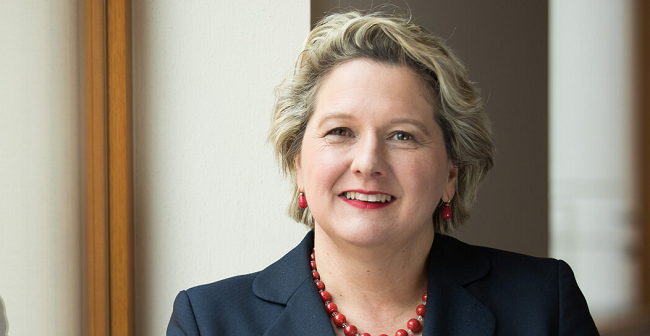The Government of Germany announced in Madrid, Spain on Wednesday, December 11, 2019 a €20 million trust fund for a joint collaboration between the United Nations Development Programme (UNDP) and Food and Agriculture Organisation of the United Nations (FAO) that will support developing countries in building more effective agriculture and land-use plans to accelerate the ambition of Nationally Determined Contributions (NDCs) to the Paris Agreement.

The German Federal Ministry for the Environment, Nature Conservation, and Nuclear Safety (BMU), through its International Climate Initiative (IKI) will fund the five-year (2020-2025) joint collaboration on “Scaling up Ambition on Land Use and Agriculture through Nationally Determined Contributions (NDCs) and National Adaptation Plans (NAPs) Implementation.”
Rising sea levels, droughts, floods, increasing temperatures, changing rainfall patterns and other climate change impacts are projected to drive an additional 100 million people into poverty within the next decade and to displace 200 million people if countries fail to accelerate the ambition of their NDCs.
Transforming the agriculture sector will be essential in protecting vulnerable people from these impacts, reducing greenhouse gas emissions, building climate resilient livelihoods, and ending hunger and poverty to achieve the targets outlined in the Paris Agreement and Sustainable Development Goals (SDGs).
Federal Environment Minister, Svenja Schulze, commented: “Too little attention has been paid to land use and agriculture in international discussions on climate until now, despite the fact that soil is the largest carbon sink on the planet after the oceans. Soil holds more carbon dioxide than all forests and the atmosphere combined.
“Overexploitation and erosion, however, release large amounts of CO2 from soil. In addition, adaptation to climate change is confronting agriculture with ever-greater challenges, especially in developing countries, where especially high priority is attached to food security and farming incomes. But agriculture is also a major greenhouse gas emission source. These are issues that we want to tackle together with our partner countries.”
Germany is said to be an important and trusted partner for UNDP and FAO, and its contributions support a wide range of programmes around the world on designing and implementing NDCs. With the support from Germany, the programme will serve as a “facility” for governments of 10 to 12 developing countries and provide technical support both on adaptation and mitigation in the agriculture sector to enhance NDC ambitions by 2025.
“This strategic programme will assist developing countries with planning and budgeting the much-needed shift to more sustainable land-use and agriculture practices – while helping vulnerable communities to better cope with the impacts of climate change,” said UNDP Administrator, Achim Steiner. “And this exciting partnership with FAO will feed into UNDP’s Climate Promise which is supporting 100 countries to submit enhanced NDCs by 2020.”
FAO and UNDP will work closely together to implement the initiative, and support and serve countries based on their comparative advantage.
FAO Director-General, QU Dongyu, said: “An innovative approach to agriculture and land use is essential if we are to confront the current climate emergency and deliver on the goals of the Paris Agreement.
“This generous funding from the German government will support FAO and UNDP in their work with developing countries and help create initiatives in agriculture and land use for the achievement of the UN Sustainable Development Goals.”
The new programme will mobilise strategic links and alliances between governments and the private sector, financial institutions and research organisations to upscale climate action on agriculture and land use. Together, FAO and UNDP will provide technical support to governments on resilient value chains, nature-based solutions and landscape assessments, and assist in integrating agriculture-related NDC-priorities in their agricultural planning and investments.
It was gathered that the strong and trusted partnership between UNDP and FAO has been nurtured, since 2015, when the two agencies began laying the foundation for adaptation planning in agriculture sectors with 11 countries across Asia, Africa and Latin America. Over the past five years, the joint “Integrating Agriculture in National Adaptation Plans Programme” (NAP-Ag) is said to have enhanced the capacities of around 2,000 national and sectoral decision-makers representing over 90 institutions. Since 2008, UNDP has supported 75 countries in building their National Adaptation Plans.
